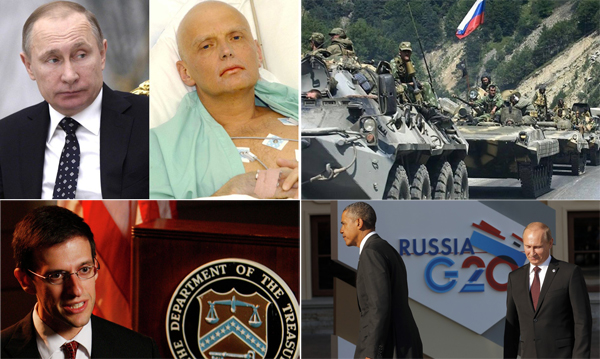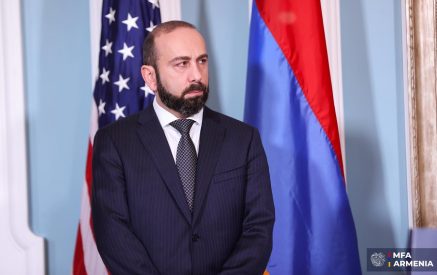Clear accusation
The tone expressed to the attitude to Russia by the US recently moved to a completely different level. Acting Deputy Minister of the US Treasury, Adam Szubin, announced in the documentary film “Putin’s secret wealth” shot by BBC that the United States considers Putin to be corrupt, “The United States is aware of the Russian president to be corrupt.” Regarding this assessment, White House Press Secretary Josh Earnest explained that it the best reflects the US president’s and the administration’s view.
Now, debate “stones” are thrown to develop and discuss this theme, the whole international media is full of articles about Putin to be corrupt with comments and statements. For example, the White House official representative has not given a definite answer to the reporter’s question of whether the US is planning to define sanctions against Vladimir Putin. Earnest has said that it is a matter of jurisdiction of the Ministry of Finance. And the US Treasury is a ministry equal to the power structure and Adam Szubin – the head of financial intelligence.
The Kremlin responded to a White House spokesperson’s statement. Putin’s spokesperson Dmitry Peskov informed that RF president is aware of the accusations made against him and considers them unacceptable. He said that such “outrageous allegations” refer also to the 100 million people living in Russia who support Putin. RF authorities are expecting explanations, announced Peskov, adding that the allegations by the White House are associated with the upcoming presidential elections in Russia in 2018. As mentioned by the Kremlin spokesperson, the Russian topic in the United States is used in internal political pre-election processes, “There’s a presidential campaign there, and we see how the candidates act with objective and subjective criticism about Putin and literally compete to see who will come up with more criticism.”
Read also
As we can see, Moscow did not even try to deny Washington’s presented assessment. The statement to expect an explanation from the United States was a response on duty, which is accepted to use in such cases. Calling a high-rank official, even the state president corrupt in the type of country like ours, also in Russia, no one cares about it, moreover, excited, but not in the United States where such assessments are not said just in the air. They must be substantiated and implies consequences. And it seems that no lack of consequences is felt…
Heavy burden of Litvinenko’s murder
The final report of the British investigation on the mysterious death of the former staff member of Russia’s special services, Alexander Litvinenko, concluded that Russia’s authorities are standing behind his death and that Russian President Vladimir Putin apparently has approved the commitment of Litvinenko’s murder.
Judge Robert Owen study showed that most likely, Litvinenko’s murder is carried out by Russian citizens Dmitry Kovtun and Andrey Lugovoy by the command of the Russian FSB. Most likely, the Head the Russian FSB Nikolai Patrushev has personally approved the liquidation of Litvinenko. The judge has also noted that there was personal animosity between Litvinenko and Putin, Putin’s administration members had the motives to kill Litvinenko.
Alexander Litvinenko died in November 2006, in London. Being at the death’s door, Litvinenko accused Putin of ordering his death. His death was caused by a large portion of radioactive “polonium -210”, which is assumed to be added to his tea. Three weeks before his death, on November 1, 2006, Litvinenko had a meeting with State Duma Deputy Andrei Lugovoi (2007) and the businessman Dmitry Kovtun in the “Millennium” Hotel in London where they drank tea, and there were allegations that Litvinenko’s tea was poisoned by radioactive polonium, of which he died. The head of London Police Anti-terrorist Branch, Peter Clarke, announced that traces of polonium were found on the aircraft by which Lugovoi and Kovtun have arrived in London, as well as in the places of London where they had been.
In 2001, Alexander Litvinenko was granted a political asylum in the UK. He was strongly criticizing the Russia authorities and President Vladimir Putin. Information was circulating that Litvinenko was killed as he had evidence of the ties of Russian high-rank officials with criminal groups.
By the way, Alexander Litvinenko was also known for his sensational statement about October 27. In April 2005, in an interview with “Real Azerbaijan” newspaper, he had announced that the terrorist act in the RA National Assembly on 27 October 1999 was organized by the Russian special services, in particular, the Main Intelligence Directorate (GRU). “Many of the leaders of Russia’s intelligence services are aware that the execution by a firing squad in the RA National Assembly in 1999 was organized by another special service – GRU. This special operation enabled the Russian political leadership to prevent the signing of the agreement on Nagorno-Karabakh settlement. If I am not mistaken, it was talked about the signing of the memorandum between Presidents Heydar Aliyev and Robert Kocharyan at the OSCE Summit in Istanbul. The peace process was evolving outside of Russia’s control, which incited the RF intelligence services to carry out a special operation in the Armenian Parliament. The explosion in the Baku metro, the slaughter at the Armenian Parliament are the same links of the chain of subversive operations by the Russian special services,” said Litvinenko.
Moscow officially has consistently refused the proposals of London to extradite Lugovoi and Kovtun to the British law enforcement officials. Russia denies the accusations in the involvement of Litvinenko’s death, claiming that they were politically motivated. While Litvinenko’s widow, Marina Litvinenko, opines that the studies show that new economic sanctions should be imposed on Russia.
One more blow to Putin
Recently, a remarkable information popped up about the five-day Russian-Georgian war in August 2008. The International Criminal Court of Hague launches an investigation of war crimes reported during the Russian-Georgian war.
According to the decision made by the three members of the court, Gambian lawyer Fatou Bensouda will head the investigative team, which will be engaged in the search for evidence of violations of the rights of civilians. “My headed office has applied still last October with a request to receive an official permission to launch the investigation based on reliable and thoroughly analyzed information at our disposal about the possible crimes committed in Georgia. All three parties of the conflict were involved in them: the Georgian armed forces, South Ossetia units and Russia’s armed forces,” mentioned Bensouda in her video message, adding that the need for the investigation of war crimes committed during the war in August by the International Criminal Court arose after the fact when in March 2015, Georgia suspended the investigation of this case for an indefinite period. “When the time for necessity comes, we will appeal to the court with a motion for detention or arrest of the individuals subject to criminal liability,” said the representative of the International Criminal Court.
The decision by the Hague court to launch an investigation defines specific types of war crimes around which a search for evidence will be held. According to the verdict of the judges of the International Criminal Court, Bensouda’s headed team will investigate the “Wilful homicide committed in the context of the international armed conflict for the period of 1 July to 10 October 2008, the cases of forced deportation of civilians and persecution, wilful attacks on peacekeepers, pillaging and the cases of destruction of property belonging to others.”
The investigation of war crimes during the five-day Russian-Georgian war in August 2008 is another serious blow to Putin by the West. Would the world stand up before the Ukrainian problem if the reaction of the West in 2008 towards Russia’s actions were the same as it is now?
Today, there are all preconditions to report that the West’s attitude towards Putin has already passed to the phase of specific consequences and implementation of actions. Time will tell what the kind of Putin is necessary for the West: a week one, a negotiator with them, an obedient and agreeing one, or the preference will be given not to deal with him any longer.
Emma GABRIELYAN, Aravot daily























































